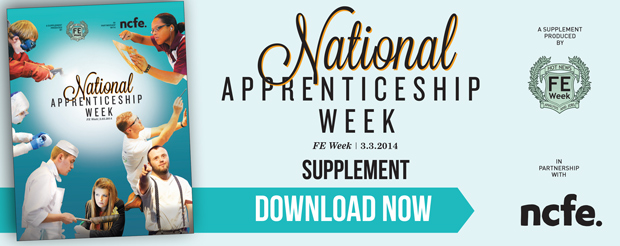Labour’s Skills Taskforce has called for school funding to be conditional on whether students progress into FE, employment or training.
The third report by the group, set up last year to provide independent policy recommendations to Labour, was published today and recommends that funding withheld from affected schools should go towards their careers guidance services.
Young people should also continue to study maths and English until 18, according to the report, entitled Qualifications Matter: Improving the Curriculum and Assessment for All, and there should be a new national baccalaureate for school leavers, including skills, “character-building” and workplace learning.
Taskforce chair Professor Chris Husbands said: “In Britain, we have a poor record of delivering high skills and effective qualifications for the forgotten 50 per cent: the half of young people for whom the current qualifications regime simply does not deliver.
“The taskforce has set out plans for radically improved information and advice which will help young people negotiate an ever more complex labour market, and for a deliverable National Baccalaureate — a simple framework for qualifications and skills which will make it easier for all young people to make the transition to adulthood.
“What we have set out is do-able and practical. Our economic and our social future depends on getting this right.”
The report suggests funding should be withheld from schools where students do not progress into FE, employment or training, and these funds should be used to support the delivery of better careers advice services which would be delivered in partnership with employers and brokered by local enterprise partnerships.
Schools would be responsible for tracking the destinations of their students.
Shadow Education Secretary Tristram Hunt said: “This report is an excellent contribution to Labour’s thinking on education and skills.
“The talents of the forgotten 50 per cent — those young people who wish to pursue a vocational route through education — are being overlooked by this government.”
The proposed national baccalaureate would either be available to all learners leaving secondary school, and would consist of level three core learning, maths and English, a personal development programme and an extended project.
Following the UK’s poor performance in literacy and numeracy compared to other countries, revealed by the Organisation for Economic Co-operation and Development report in October, all learners would continue to study maths and English until 18, regardless of what course they were taking, said a Labour spokesperson.
The report comes the week after figures from the Office for National Statistics for October to December showed that there were 1.04 million 16 to 24-year-olds in the UK who were not in education, employment or training — a decrease of 38,000 from July to September 2013 and down 37,000 from the previous year.
Mr Hunt said: “Labour will deliver for the forgotten 50 per cent through a technical baccalaureate with rigorous vocational qualifications, requiring schools and colleges to collaborate to reduce NEETs and transforming careers advice by working with local employers so young people have the best chance of succeeding in the job market.
“David Cameron’s ambivalence to vocational excellence will cost our country dear, prising young people out of the global labour market. Reforms must focus on driving up standards in maths and English, strengthening character and resilience and equipping the labour market of the future with the skills set it needs. More of the same just won’t do.”
The taskforce has previously published two reports, its interim report in May, entitled Talent Matters – why England needs a new approach to skills, which recommended improvements in FE teaching, and its review of apprenticeships, A revolution in apprenticeships: a something-for-something deal with employers, published in September.


